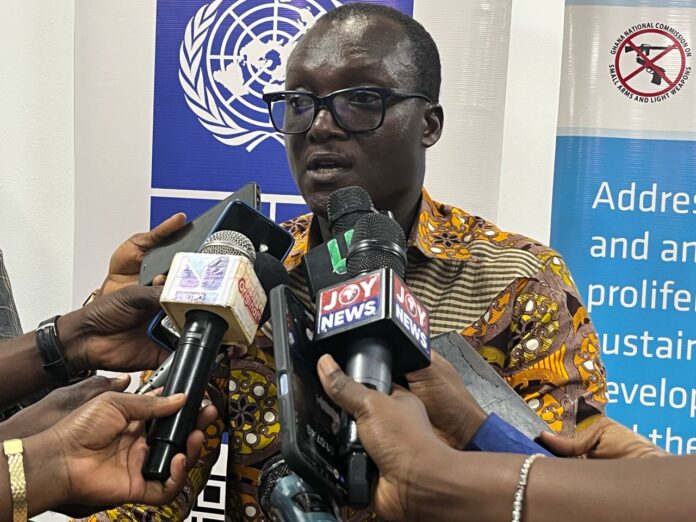Ghana is grappling with an alarming rise in modern crimes, with outdated laws struggling to keep pace with rapidly advancing technologies and evolving criminal methods.
One major concern, according to the Managing Director of the International Action Network on Small Arms, Johnson Asante-Twum, is the country’s lack of regulation on gun ownership, which has left it vulnerable to exploitation by criminals.
As Ghana’s laws fail to address these modern challenges, the country’s public safety is at great risk, and it is facing mounting financial losses as a result.
Currently, there is no cap on the number of firearms an individual can possess in Ghana, fueling fears that individuals may amass weapons with no oversight or accountability.
This alarming gap in regulation, coupled with the absence of necessary competency training for gun owners, only worsens the situation.
Without proper knowledge and experience, those handling firearms may unintentionally cause accidents or deliberately misuse them.
In an effort to combat the growing threat of illicit small arms and ammunition, the West African Action Network on Small Arms (WAANSA) Ghana hosted a media engagement event at Accra City Hotel on February 21, 2025.
This event marked a crucial step in tackling arms governance issues, as various stakeholders, including international bodies and civil society organizations, gathered to discuss how Ghana is addressing the proliferation of arms linked to the West African region, particularly within the context of the United Nations’ Saving Lives Entity (SALIENT) Project.
The President of WAANSA Ghana, Ken Kinney, delivered an opening address calling for urgent action to prevent further destabilization in the region.
He noted that Ghana, along with its West African neighbors, is grappling with violent conflicts exacerbated by easy access to small arms and a lack of effective arms control mechanisms.
The SALIENT Project, which began in 2023, has seen Ghana collaborating with UN agencies such as the UN Office for Disarmament Affairs (UNODA) and the UN Development Program (UNDP).
The project aims to strengthen small arms control within Ghana, with a focus on integrating arms governance into national development frameworks.
Through this initiative, WAANSA Ghana has taken on the critical responsibility of advocating for urgent legal reforms on small arms.
During the media engagement, Mr. Kinney emphasized the importance of the media’s role in raising awareness and advocating for the passage of the Arms Commission Bill, which has been long overdue. The bill seeks to regulate the ownership, distribution, and control of firearms within Ghana, a vital step in tackling both legal and illicit arms circulation.
ALSO READ:

